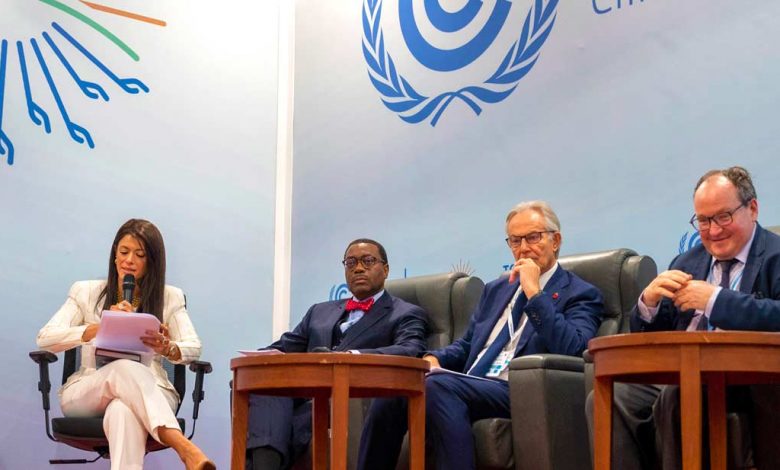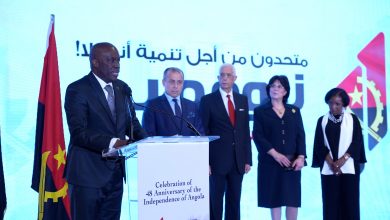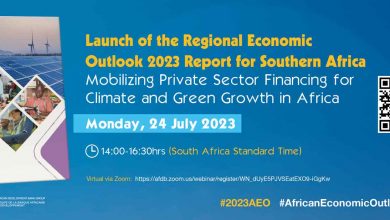COP27: Egypt and 100 partners, including the African Development Bank, launch “Guidebook for Just Financing” to tackle climate challenges | African Development Bank

Diplomat.Today
The African Development Bank
2022-11-11 00:00:00
——————————————-
The Egyptian government launched the Sharm El Sheikh Guide to Equitable Finance at a roundtable event on November 10 at COP27.
The guide was created by the Egyptian Ministry of International Cooperation and more than 100 development partners, companies, development finance institutions and non-profit organizations. These include the International Monetary Fund, the Rockefeller Foundation, the World Economic Forum, Climate Investment Funds and Citi, the banking group.
The publication argues that climate finance should complement rather than replace development finance, and ensures that countries and regions most in need of climate finance have access to it.
It aims to support the creation of an international framework that will help African countries make more effective use of green finance, particularly against the backdrop of budget deficits due to responses to the Covid-19 pandemic and rising energy and food prices .
Egypt’s International Cooperation Minister, Rania Al-Mashat, said: “The funding issue has become central given the devastating effects of climate change. The worsening impact of the Covid-19 pandemic and the conflict between Russia and Ukraine means that developing countries and emerging economies need dedicated financing more than ever, which is essential to continue their climate action.” She added: “This new guide identifies an international framework that promotes equitable distribution of climate finance, particularly in favor of African countries.”
Dr. Akinwumi Adesina, Chairman of the African Development Bank Group, said: “Climate change is the greatest threat facing humanity today. It places a heavy burden on the world’s poorest and most vulnerable people. It distorts landscapes, ruins populations and threatens the lives of billions of people every day. In this context, the Guide provides an excellent opportunity to draw attention to the financial needs of the countries most vulnerable to the impacts of climate change, without shifting development funding or increasing debt.”
He said the African Development Bank was pleased to have contributed to its preparation and remained committed to supporting its implementation. “We support knowledge with action: our climate finance has increased from 9% in 2016 to 41% last year,” added Adesina.
The guide calls on international climate actors to take into account historical differences in the distribution of climate finance between countries. It also defines the concept of fair finance in the structure of international climate finance and the creation of a mechanism to provide it. It also recommends that such funding be concessional in nature and aligned with countries’ budgetary requirements.
It also emphasizes the need to establish an effective governance system, with rules that encourage the establishment of green markets, and emphasizes the importance of an effective monitoring and evaluation system and new coordination mechanisms between countries and key stakeholders.
——————————————-



